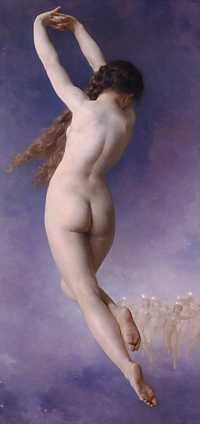Rapunzel
Global Salon Moderator
     Offline
Offline

Life is like licking honey from a thorn.
Posts: 674
East Nottingham, PA
Gender: 
|
Dreadlocks can supersede person
By KAREN GUZMAN, Raleigh News & Observer
October 16, 2003
Russell Robinson, a media technologist, sits on the North Carolina School of Science and Math's Board of Trustees. Robinson believes that his colleagues do not notice his hairstyle.
It's a reaction Russell Robinson knows well. His hair is the catalyst. First the eyes widen. Then the lips part. This is the instant of stunned hesitation, quickly covered by a handshake and smile, that can occur when interviewers realize that Robinson, with a tumble of dreadlocks snaking down his back, is their job applicant.
Sitting in a Durham, N.C., diner, dreads pulled back neatly from his face, Robinson laughs because there is, after all, something funny about a hairstyle having such power.
In recent years, an increasing number of blacks have opted for dreadlocks or other natural hairstyles , such as braids, twists, cornrows or even afros. Once jarring , the look now seems almost mainstream.
Almost. Although the natural looks are accepted in more casual workplaces, some segments of corporate America still shy away from the look. And that means blacks who choose the natural looks may find they have limited their career choices .
The truth is that today not many private sector leaders have dreadlocks, Johnson says. Right from the start, job recruiters tend to look for candidates who fit the "mold," and even if a dreadlocked-head gets in the door, not fitting in can hurt his or her upward mobility.
But that has to change, Johnson says. "The challenge (for companies) is to understand that more and more people are holding onto their culture, and that companies that adjust to that are going to be the winners in the end."
More companies are adjusting, according to John L. Jackson Jr., assistant professor of cultural anthropology at Duke University.
Jackson wore dreadlocks himself while a graduate student and during job interviews.
Leery employers may suspect the style signifies someone with a defiant attitude.
"There's something implicitly oppositional about it," Johnson says, and whereas dreadlocked blacks may be seen as challenging, "the white with dreads is either considered to be a freak or (a black wannabe.)
Rules for hairstyles vary widely from company to company, depending upon the nature of the work and the employer's image. It is usually within an employer's rights to establish and enforce dress codes that are fair and reasonable. An employer - especially if it's a private corporation - also has the right to create a company image that extends to an employee's appearance and demands that she "look the part."
But with the diversification of the workplace, "the issue is what is the part?" Johnson says.
Robinson says his hair has never been an issue at his current workplace. He's a media technologist at the North Carolina School of Science and Math.
"I found that having my hair this way has been a big boon to my self-esteem," he says. "The style I have right now is truly indicative of my ancestors."
But, he says, "With the style you have to accept the fact that you limit your accessibility."
|
 Home
Home

 Help
Help

 Search
Search

 Login
Login


 Home
Home

 Help
Help

 Search
Search

 Login
Login

